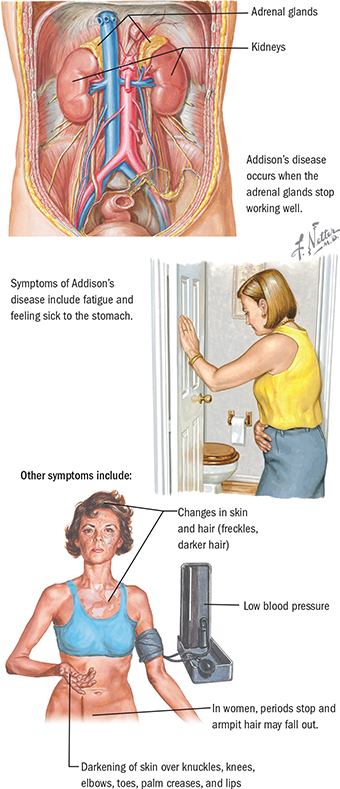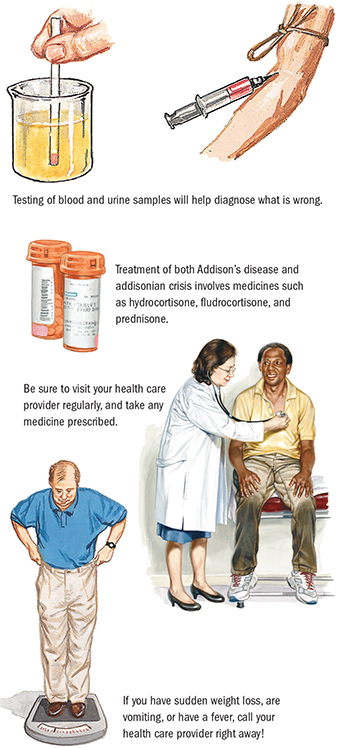
Addison’s disease, also known as adrenal insufficiency, is a condition in which the adrenal glands don’t work well. The two small adrenal glands sit atop the kidneys. They usually produce hormones called cortisol and aldosterone. Without these hormones, salt and water in the body is lost in urine, which makes blood pressure fall too low. Also, potassium builds up to a dangerous level. There is no effective way to prevent Addison’s disease.
Addison’s disease develops because the immune system (disease-fighting system) doesn’t work well. In an autoimmune disease, the body makes substances (antibodies) that damage adrenal glands. Other causes include infections (e.g., tuberculosis, AIDS), cancer, bleeding, and blocked blood vessels involving the adrenal glands. Adrenal glands may also develop poorly from birth. Surgery, medicines with harmful side effects, and x-ray treatments can also cause the disorder.
Some people may have no symptoms. Others may feel weak, tired, or sick to the stomach; there may also be weight loss, decreased appetite, low blood pressure, depression, or skin and hair changes. Darkening of the skin over knuckles, knees, elbows, toes, or lips, creases of palms, and mucous membranes may be present.
People with addisonian crisis have a more serious illness that is a medical emergency. The sudden crisis usually results from stress, such as during surgery, trauma, or illness. Symptoms may include severe nausea and vomiting, diarrhea, very low blood pressure, leg and stomach pain, and coma.

The health care provider will order blood and urine laboratory tests and measurements of adrenal hormones.
The health care provider may also want x-rays and CT (computed tomography) scans of the adrenal glands.
Medicine to replace adrenal hormones includes hydrocortisone, fludrocortisone, and prednisone. These medications work well for this lifelong illness.
Contact the following sources:
Copyright © 2016 by Saunders, an imprint of Elsevier, Inc.
Ferri’s Netter Patient Advisor